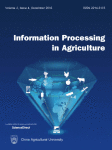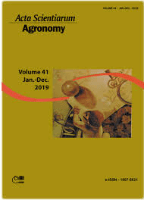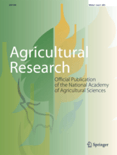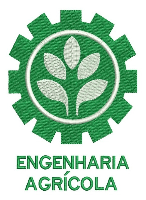
Information Processing in Agriculture
Scope & Guideline
Driving Innovation in Farming through Data and Technology
Introduction
Aims and Scopes
- Integration of AI and Machine Learning in Agriculture:
The journal emphasizes the application of artificial intelligence (AI) and machine learning techniques for various agricultural tasks, such as crop monitoring, disease detection, and yield prediction. This includes the development of algorithms and models that leverage data from diverse sources. - Remote Sensing and Image Processing:
A significant focus is on remote sensing technologies and image processing methods for monitoring and analyzing agricultural environments. This includes the use of UAVs, satellite imagery, and computer vision to assess crop health, soil conditions, and pest populations. - Precision Agriculture Technologies:
The journal promotes research on precision agriculture, which utilizes technology to optimize field-level management regarding crop farming. This encompasses sensor technologies, IoT applications, and data analytics to improve farming efficiency and reduce waste. - Sustainable Agricultural Practices:
Research that addresses sustainable practices in agriculture, such as resource-efficient farming, environmental impact assessments, and the use of renewable energy sources, is a core part of the journal’s scope. - Agricultural Robotics and Automation:
The publication includes innovative studies on robotics and automation in agriculture, focusing on robotic systems for planting, harvesting, and monitoring crops, thus enhancing labor efficiency and precision. - Food Safety and Quality Control:
The journal also highlights the importance of food safety and quality, including techniques for monitoring and ensuring the quality of agricultural produce throughout the supply chain.
Trending and Emerging
- AI and Deep Learning Applications:
There is a significant rise in research utilizing AI and deep learning for various applications, such as crop disease detection, yield prediction, and behavioral analysis of livestock, indicating a strong trend towards data-driven decision-making. - Drones and UAV Technologies:
The use of drones and UAVs for agricultural monitoring, spraying, and data collection has gained momentum, highlighting the increasing reliance on aerial technologies to improve precision agriculture. - IoT and Smart Farming Solutions:
Emerging research on IoT devices and smart farming solutions is becoming prevalent, focusing on real-time monitoring and automation of agricultural processes to enhance productivity and resource management. - Sustainable and Resilient Agricultural Systems:
Research focusing on sustainable agricultural practices that promote resilience against climate change and resource conservation is on the rise, reflecting the global emphasis on sustainability. - Integration of Big Data Analytics:
The incorporation of big data analytics into agriculture is trending, with studies exploring how large datasets can be leveraged for improved decision-making and forecasting in farming operations.
Declining or Waning
- Traditional Farming Techniques:
Research centered on traditional farming techniques and practices has become less prominent, as the focus shifts towards more technologically advanced methods that leverage data and automation. - Conventional Pest Management Strategies:
There is a noticeable decline in studies related to conventional pest management strategies, as the journal increasingly emphasizes integrated pest management approaches that utilize modern technology and data analytics. - Basic Agricultural Economics:
While still relevant, there has been a reduction in publications focusing solely on basic agricultural economics, as interdisciplinary approaches that incorporate technology and analytics gain more traction. - Manual Monitoring Techniques:
Research that relies on manual monitoring techniques for agricultural practices is diminishing, with a growing preference for automated and sensor-based systems that provide real-time data. - Static Crop Management Practices:
Static methods of crop management that do not incorporate adaptive or technology-driven elements are seeing less attention, as dynamic, data-driven management practices become the norm.
Similar Journals

Poljoprivreda
Exploring the frontiers of agriculture since 2000.Poljoprivreda is a distinguished open-access journal dedicated to the field of agronomy and crop science, published by the FAC Agriculture Osijek in Croatia. Since its inception in 2000, the journal has been committed to disseminating high-quality research that informs both academic and practical advancements in agriculture. With an ISSN of 1330-7142 and an E-ISSN of 1848-8080, Poljoprivreda provides a vital platform for researchers, professionals, and students to engage with the latest findings and methodologies in agronomy, contributing significantly to the enhancement of agricultural practices in Croatia and beyond. Although currently ranked in the 22nd percentile within its category according to Scopus, the journal aspires to elevate its standing by welcoming innovative research that addresses contemporary challenges within the agricultural sciences. By fostering open access since 2000, Poljoprivreda ensures that its scholarly content is freely available, promoting wider dissemination and collaborative opportunities among researchers globally.

ACTA SCIENTIARUM-AGRONOMY
Advancing agricultural knowledge for a sustainable future.ACTA SCIENTIARUM-AGRONOMY is a prestigious, peer-reviewed journal published by UNIV ESTADUAL MARINGA, PRO-REITORIA PESQUISA POS-GRADUACAO, focusing on advanced research in the field of agronomy and crop science. Since its inception as an Open Access journal in 2007, it has significantly contributed to disseminating high-quality research, allowing unrestricted access to its content for a global audience. Operating from Brazil, the journal holds a notable Q2 category ranking in Agronomy and Crop Science as of 2023, validating its importance within the academic community. The journal’s Scopus ranking positions it in the 49th percentile among Agricultural and Biological Sciences, indicating a robust foundation for impactful research. With a commitment to innovation and scientific excellence, ACTA SCIENTIARUM-AGRONOMY aims to provide researchers, professionals, and students with vital insights that drive forward our understanding of agriculture and its environmental implications.

Remote Sensing
Unlocking the Secrets of Our Planet with Cutting-Edge ResearchRemote Sensing is a highly esteemed journal published by MDPI, dedicated to the domain of Earth and Planetary Sciences. With an impressive impact factor reflected in its rank of #16 out of 195 in the general Earth and Planetary Sciences category, this journal achieves a commendable 92nd percentile among its peers, indicating its significant contribution to the field. Since its inception in 2009 as an Open Access journal, it has enabled researchers, professionals, and students from around the globe to access high-quality, peer-reviewed articles that delve into the latest advancements in remote sensing technologies, methodologies, and applications. Based in Switzerland, Remote Sensing serves as a vital platform for disseminating innovative research that supports and enhances our understanding of Earth's processes and environments, ensuring scientific knowledge remains freely accessible and impactful.

AGRICULTURAL RESEARCH
Fostering collaboration in agronomy and food science.AGRICULTURAL RESEARCH is a distinguished academic journal published by SPRINGER INDIA, focusing on the dynamic fields of Agronomy, Crop Science, and Food Science. With an ISSN of 2249-720X and E-ISSN of 2249-7218, this journal has established itself as a valuable resource for researchers, professionals, and students dedicated to advancing agricultural knowledge and practices. The journal is recognized in the 2023 Scopus Rankings, achieving commendable quartile positions, including Q2 in Agronomy and Crop Science and Plant Science, as well as Q3 in Food Science, indicating its influential presence in the academic community. AGRICULTURAL RESEARCH aims to disseminate cutting-edge research findings, innovative methodologies, and comprehensive reviews, fostering collaboration and discussion among scholars in Switzerland and beyond. Through its commitment to scholarly excellence, this journal is pivotal in addressing contemporary challenges in agriculture, ensuring sustainability, and enhancing food security for the future.

SPANISH JOURNAL OF AGRICULTURAL RESEARCH
Connecting Research and Practice in AgricultureThe Spanish Journal of Agricultural Research (ISSN: 1695-971X, E-ISSN: 2171-9292), published by the prestigious Consejo Superior Investigaciones Cientificas (CSIC), serves as a vital resource for those engaged in the fields of agronomy and crop science. Established as an Open Access journal since 2003, it aims to foster the dissemination of innovative research and practical applications related to agricultural practices and sustainability. With its Q3 category in Agronomy and Crop Science and a Scopus ranking of #224 out of 406, the journal provides an accessible platform for scholars to share valuable findings that enhance agricultural productivity and environmental stewardship. Covering research from 2006 to 2024, this journal continues to be instrumental for researchers, professionals, and students eager to remain at the forefront of agricultural science advancements.

Engenharia Agricola
Empowering global agricultural practices through open access.Engenharia Agricola, published by the SOC BRASIL ENGENHARIA AGRICOLA, is a crucial open-access journal that has been at the forefront of agricultural engineering research since its inception in 1981. With an E-ISSN of 1809-4430 and an ISSN of 0100-6916, this journal stands out in the field by providing a platform for disseminating innovative studies and advancements in agricultural practices and technologies. Based in Brazil, the journal emphasizes global perspectives in agricultural and biological sciences, currently positioned in the Q3 quartile of its category, as recognized in the 2023 Scopus Ranks, where it ranks 97 out of 193 publications. Researchers, professionals, and students can access a plethora of high-quality articles that contribute to sustainable agronomy, agricultural mechanics, and resource efficiency across various environments, with open access since 2004, ensuring that critical knowledge is readily available to all stakeholders in the field.

APPLIED ENGINEERING IN AGRICULTURE
Empowering Agricultural Progress with Applied Engineering Insights.APPLIED ENGINEERING IN AGRICULTURE is a peer-reviewed journal published by the American Society of Agricultural and Biological Engineers, dedicated to advancing the field of agricultural engineering through the dissemination of high-quality research. With an ISSN of 0883-8542 and an e-ISSN of 1943-7838, this journal has been a key resource since its inception in 1985, serving as a vital platform for scholars and practitioners to share innovative ideas and practical solutions that enhance productivity and sustainability in agricultural practices. The journal is ranked in the Q3 category for Engineering (miscellaneous) as of 2023, and is positioned within the 43rd percentile of the general engineering rankings in Scopus. While not currently an open-access journal, APPLIED ENGINEERING IN AGRICULTURE remains crucial for researchers and professionals looking to explore diverse engineering solutions that address the complexities of modern agriculture, making it an invaluable resource for anyone committed to improving agricultural systems through engineering advancements.

Artificial Intelligence in Agriculture
Bridging Technology and Tradition in AgricultureArtificial Intelligence in Agriculture is a premier open-access journal dedicated to advancing the application of artificial intelligence technologies in the agricultural sector. Published by KEAI Publishing Ltd in China, this journal has rapidly gained recognition since its inception in 2019, boasting an impressive impact factor highlighted by its Q1 rankings across multiple categories in the 2023 Scopus metrics. Aimed at researchers, practitioners, and students alike, it provides a vital platform for disseminating innovative research and practical applications that bridge the gap between AI and agriculture. With a focus on enhancing productivity through cutting-edge AI methodologies, the journal encourages submissions that address the multifaceted challenges in agricultural practices. Whether you are looking to publish your work or explore the latest findings, Artificial Intelligence in Agriculture is an essential resource for anyone committed to fostering sustainable agricultural advancements through technology.

AgriEngineering
Empowering Research for Enhanced Food Production SystemsAgriEngineering is a premier Open Access journal, published by MDPI, focusing on innovative research across the disciplines of agronomy, horticulture, food science, and engineering. Established in 2019 and headquartered in Basel, Switzerland, this journal has rapidly gained recognition, evidenced by its robust performance in the Scopus rankings and its positioning in Q1 and Q2 quartiles of key categories, including Horticulture and Agronomy. With a commitment to disseminating high-quality research that advances agricultural engineering practices, AgriEngineering provides a platform for researchers, professionals, and students to explore cutting-edge developments aimed at enhancing food production systems and sustainability. Its Open Access model ensures wide-reaching accessibility to vital research outcomes, empowering global collaboration and innovation in the field. For more information on submission and access, you can visit the AgriEngineering website.

INMATEH-Agricultural Engineering
Transforming Agricultural Practices with Cutting-Edge ResearchINMATEH-Agricultural Engineering is a prominent journal dedicated to advancing the field of agricultural and engineering sciences. Published by the INST NATL CERCETARE in Romania, this journal serves as a vital platform for researchers, professionals, and students interested in the intersection of food science, industrial and manufacturing engineering, and mechanical engineering. With its ISSN 2068-4215 and E-ISSN 2068-2239, the journal has established a reputation for being a reputable source of innovative research. According to the 2023 Scopus rankings, it is positioned within Q3 for Food Science and Industrial and Manufacturing Engineering, and Q4 for Mechanical Engineering, reflecting its ongoing commitment to high-quality scholarship. The journal's open-access policy facilitates wide dissemination of its content, enabling researchers to share their findings without barriers. Covering a range of topics relevant to agricultural engineering, from technological advancements to sustainable practices, INMATEH aims to foster collaboration and knowledge exchange among the global academic community. Its convergence period from 2012 to 2024 signifies the journal’s growth and adaptability to emerging trends and challenges in the field.